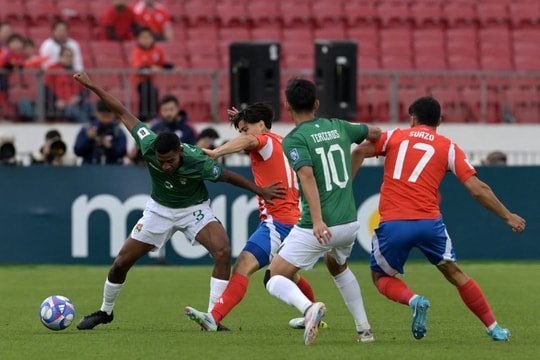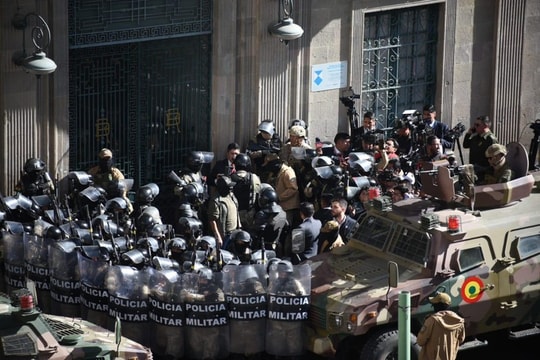Bolivia's political turmoil and the shocking report
(Baonghean) - Bolivian President Evo Morales resigned just hours after agreeing to hold new elections. According to the New York Times, the plan to hold new elections stemmed from a shocking report released by the Organization of American States (OAS) on November 10, which found “clear manipulations” of the voting process in the country’s October 20 elections.
Election interference suspicions
Morales has faced mounting pressure in recent weeks, Vox reports, after he emerged as the clear winner of the vote after 24 hours of silence from election officials on election night. Questions about how Morales went from facing a runoff before election officials went into “silence mode” to suddenly winning have led leading opposition groups to allege fraud and sparked street protests. At least three people have been killed during the protests.
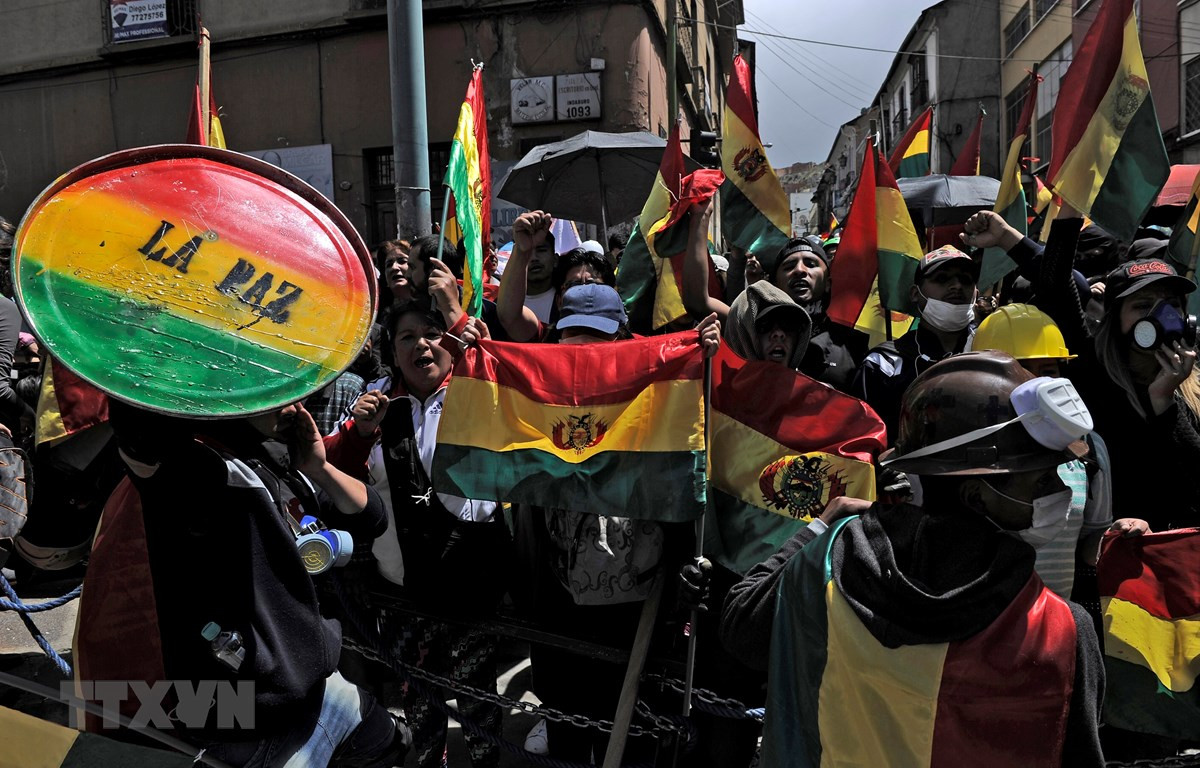 |
| Protest in the capital La Paz, Bolivia, November 9, 2019. Photo: AFP/TTXVN |
The OAS report asserted that the election results had indeed been tampered with: “The manipulation of the electoral computer systems was so extensive that it required a thorough investigation by the Bolivian State to find the root cause and to assign responsibility for this serious incident.” Along with this statement, the OAS recommended that Bolivian authorities dissolve the current electoral body, which is allegedly run by supporters and backers of Mr. Morales, and then hold another election.
Morales announced on November 10 that he would follow those recommendations. Following calls from members of the armed forces, opposition leaders and the public for his resignation, Morales formally announced his resignation on Sunday evening. The decision came after weeks of anti-government protests across the country. Protesters torched local election offices, set up blockades and forced a mayor to parade barefoot through the streets after cutting off her hair and dousing her with paint.
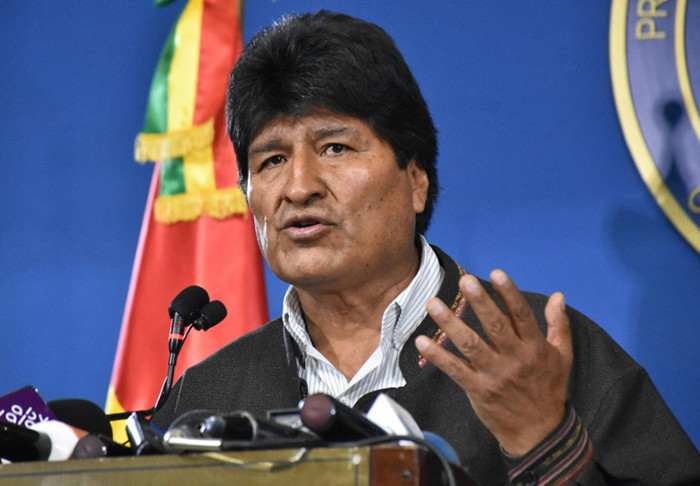 |
| Bolivian President Evo Morales announced his resignation on November 10. Photo: AFP |
On November 9, police forces refused to suppress the protests, and the military also “turned its back” and “said no” to restoring order, issuing a statement saying: “We will never confront the people we are responsible for and will always protect the peace, coexistence and development of our homeland.”
On November 10, General Williams Kaliman told the press: “After analyzing the conflict situation in the country, we recommend that the president relinquish his authority to create conditions for pacification and maintain stability, for the benefit of our Bolivia.” And, the news that the Bolivian leader stepped down from the throne of power was welcomed and celebrated in many places.
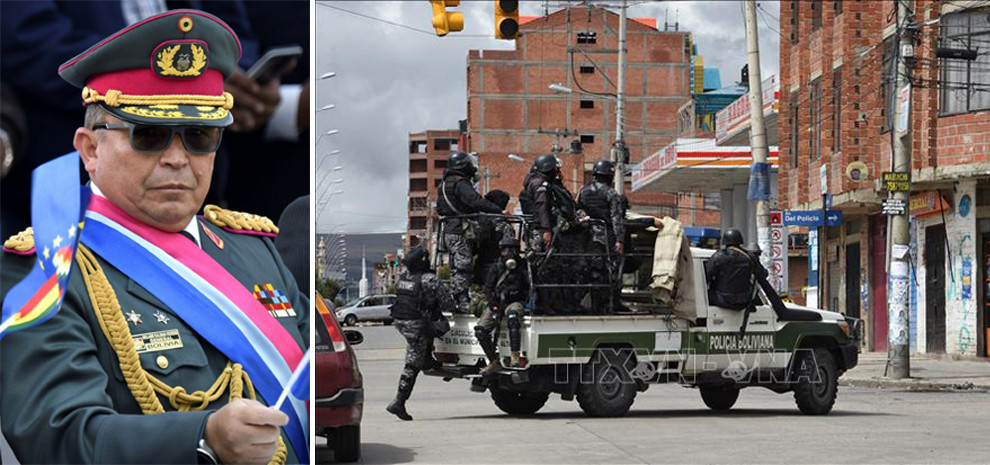 |
| Bolivian armed forces chief Williams Kaliman (left) has called on Mr Morales to resign. Photo: AFP |
Efforts to change the Constitution
Protesters' concerns about Mr Morales, Latin America's longest-serving leader, were sparked even before the October election.
Morales, a former coalition leader, became Bolivia's first indigenous president, first elected in 2006. He came to power alongside a wave of left-wing candidates in Latin America.
Under his leadership, lawmakers drafted a new constitution that allowed a sitting president to be re-elected only once. Morales called another election in 2009, won, and argued that it was his first election under the new government, allowing him to run again in 2014.
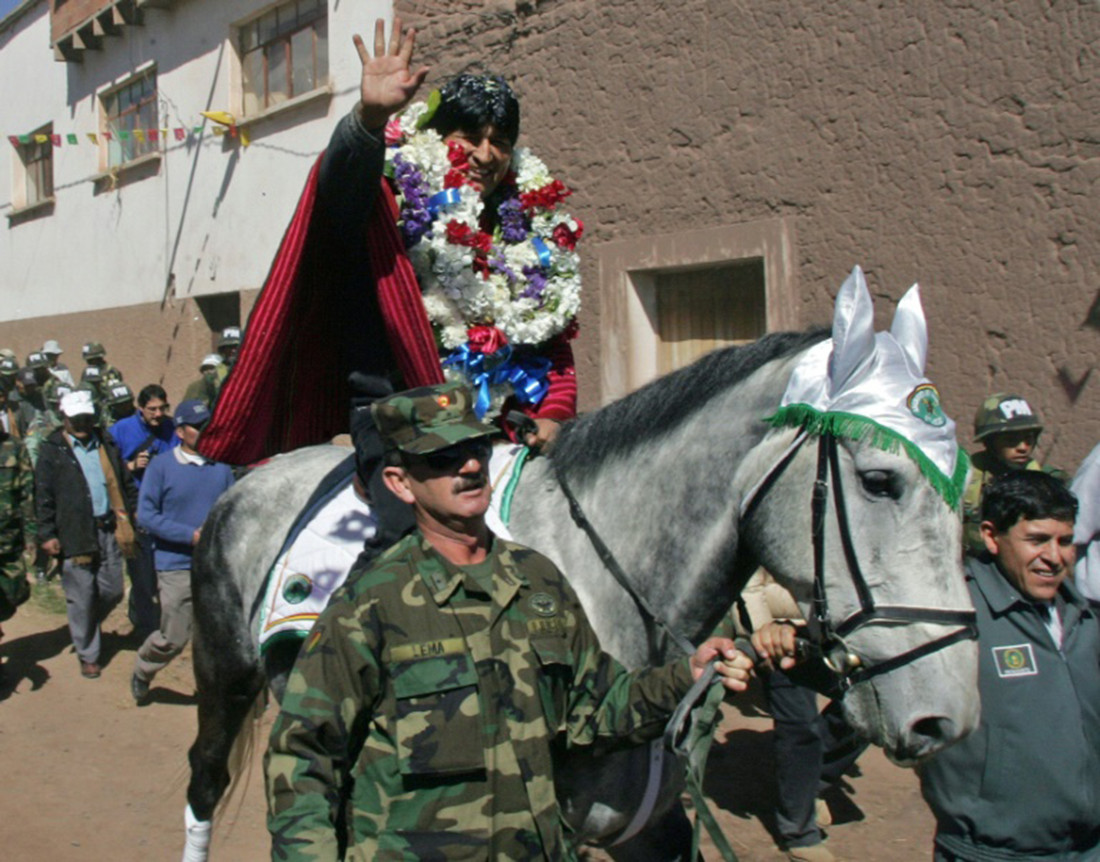 |
| Evo Morales is Bolivia's first indigenous president, elected in 2006. Photo: AFP |
Amid criticism that Morales had been re-elected twice illegally, he held a referendum in 2016 to amend the constitution to allow the president to serve three consecutive terms. Voters rejected the measure, but Morales convinced a Supreme Court, which is believed to be full of his supporters, that he should be allowed to run again, arguing that term limits violate human rights.
Going into the 2019 election, polls showed that Morales would not receive enough votes to avoid a runoff. A presidential candidate in Bolivia needs at least 50% of the vote to win, and if he fails to do so, he must be within 10 percentage points of his closest rival. Early election counts suggested that Morales would not meet either of those criteria, and when the results released to the public seemed to confirm this, the electoral council abruptly stopped counting the votes.
Exactly one day later, they announced the results: Mr. Morales had somehow narrowly avoided a runoff with former President Carlos Mesa, his closest rival. Mesa called the result “a blatant and shameful alteration of our vote,” and the OAS said it “caused a loss of confidence in the electoral process.” The European Union, the United Nations, the United States, Brazil, Argentina, and Colombia all voiced their approval.
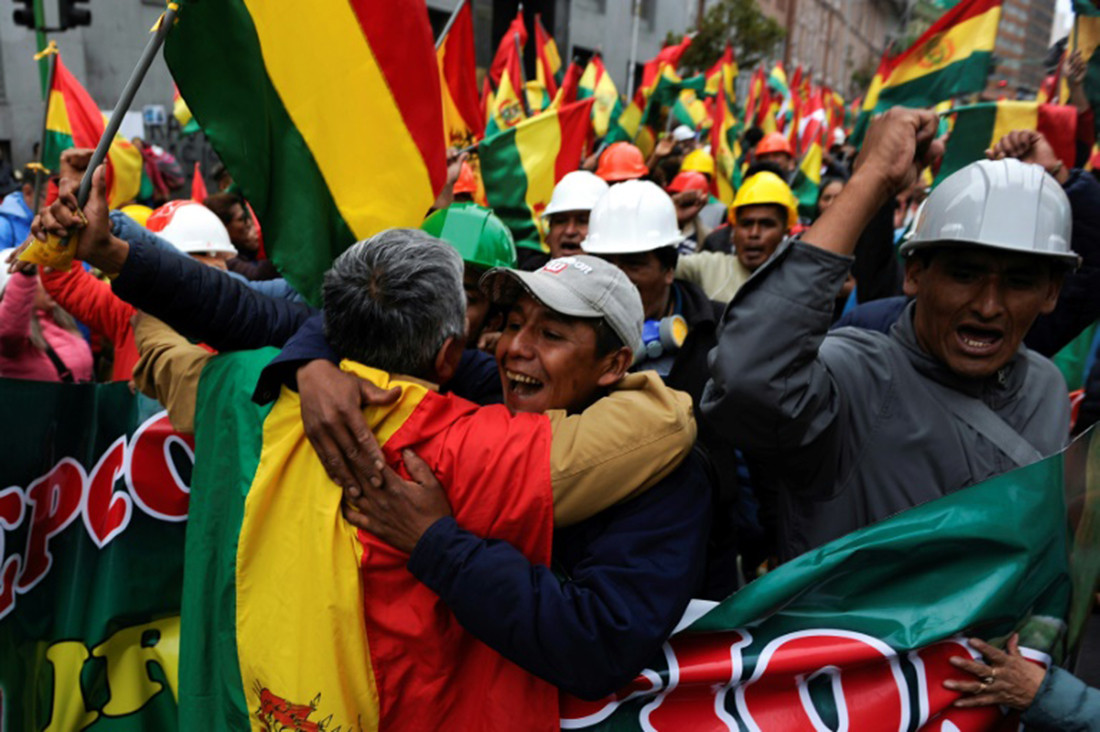 |
| The streets of La Paz were filled with people celebrating after the news of the president's resignation. Photo: AFP |
Thousands of people saw the result as clear election fraud and took to the streets, making Bolivia the latest Latin American country to be gripped by protests, amid ongoing unrest in Chile and recently settled unrest in Ecuador.
Foreign policy experts attribute the results to a range of factors, including economic recession and anger over broken political promises. At the heart of the problem, they argue, is widespread distrust of politicians of all parties. As if to confirm this, Vox cites research from Vanderbilt University that shows more than 80% of people in the region believe more than half of their politicians are corrupt, and in Bolivia, only 16% of people trust political parties.
It remains unclear whether Bolivians will have another chance to elect their leader. Nor is it clear who they will be weighing up to fill the power vacuum that exists in the country’s politics. Mesa has signaled that he plans to run. Morales, for his part, will likely be a sideline observer this time.


